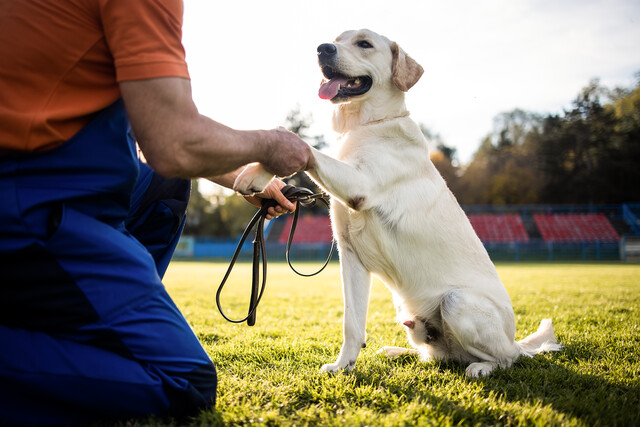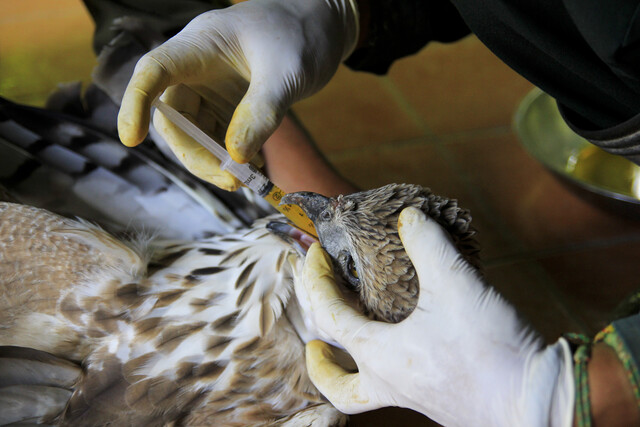Online Class: Horse Care, Riding, and Equine Management

no certificate
with CEU Certificate*
-
12Lessons
-
23Exams &
Assignments -
215Students
have taken this course -
4Hours
average time -
0.4CEUs
Course Description
While it's impossible to describe the exhilaration and connections to yourself and to nature you will experience while riding a horse, be assured that nothing else you ever do will be quite like it. That may not seem true the day after your first ride, when you will probably have some aches and pains from muscles you don't use often and may feel like your legs have forever become an "O" shape, or when you are learning to ride the trot, which is a big challenge for most of us, but those kinds of problems will disappear quickly as you learn and love to ride.
You'll also love horses themselves. They are friendly, gentle animals and companions -- and enjoyable riding requires that you and your horse, or a stable horse you may ride, work together. Since horses are herding animals in the wild, they enjoy having at least one other horse companion, and will take you into their herd, too. You'll like that!
- Completely Online
- Self-Paced
- Printable Lessons
- Full HD Video

- 6 Months to Complete
- 24/7 Availability
- Start Anytime
- PC & Mac Compatible
- Android & iOS Friendly
- Accredited CEUs

Course Lessons
Lesson 1: Building Bonds: Horses and Humans
Aspiring riders should seek lessons to properly develop their skills and ensure safety, beginning with gentle trail rides to acclimate the body. Rookies should start with short rides to allow underused muscles to adjust gradually to the new activity.Lesson 2: Navigating the World of Western vs. English Riding Styles
Western and English styles are distinguishable by their saddle design and purpose, with the Western style being more prevalent in rodeos and ranches, while English is favored for dressage and jumping. The choice between these styles can be influenced by local customs, personal goals, or familial connections.Lesson 3: Choosing the Perfect Riding Instructor: A Comprehensive Guide
Finding a good riding instructor involves exploring various resources like horse clubs, online directories, and direct inquiries at horse shows. It’s important to observe lessons and ask pertinent questions about their teaching methods and qualifications.Lesson 4: The Essentials of Buying and Caring for Your Horse
Purchasing a horse involves upfront costs of $2,500 to $3,500 for a safe and gentle animal, with monthly stabling and training adding to the ongoing expenses. To avoid pitfalls, consult professionals like trainers and veterinarians to assess the horse’s health and behavior before buying.Lesson 5: From Nomadic Roots to Modern Rides: The Evolution of Horse Breeds
The versatile Quarter Horse, known for its speed over a quarter-mile, is a hallmark of the American West, excelling in rodeo events and having a calm temperament suitable for various riders. With their sturdy yet compact build and distinctive solid coloring, Quarter Horses adapt well to both Western and English riding styles.Lesson 6: Boarding Insights: Creating a Safe and Nurturing Environment for Horses
Proper nourishment of a horse involves a balanced mix of high-quality hay, grains in moderation, and supplemental nutrients like vitamins, oils, and salt licks for overall health. Horses naturally need more calories during winter months, and owners should monitor feed for any potentially harmful elements.Lesson 7: Understanding Halters and Bridles in Horse Riding
Quality horse tack is crucial for safe and enjoyable riding, encompassing items such as halters, leads, bridles, and hackamores. Consideration of a horse's comfort with bits like snaffles or curbs can lead to better control and communication.Lesson 8: Understanding Saddles: Design, Fit, and Materials
Achieving an ideal saddle fit for horse well-being and rider stability requires awareness of equestrian terms and reliance on expert advice. Maintenance and accessory considerations are explored, alongside cost-effective strategies for saddle procurement and preservation.Lesson 9: Equestrian Essentials: Back to Basics
To ensure a smooth riding experience, the lesson provides detailed steps for preparing and mounting a horse, emphasizing the importance of equipment checks and proper positioning. Techniques for effective rein control, stopping, and turning are also discussed, giving riders confidence in managing their horses.Lesson 10: Ensuring the Longevity and Vitality of Your Horse: A Comprehensive Guide
Ensuring a horse's wellbeing includes observing for subtle changes in behavior or health, which could indicate issues like parasites or digestive distress. Equine health resources recommend a holistic approach encompassing proper nutrition, regular professional check-ups, and meticulous grooming practices for longevity.Lesson 11: The Intricacies of Trotting and Cantering
Adaptation to a horse's quirks might be necessary, especially with older horses, bearing in mind that some habits may not pose safety concerns. Unless you're interested in special events or competitions, this lesson concludes your current training—happy trails!Lesson 12: Saddle Up: A Beginner's Guide to Horse Sports and Vacations
Swimming between English and Western styles, horse-related sports and competitions offer something for every enthusiast, from the structured grace of dressage to the rugged thrills of rodeo. Each discipline demands not only proficiency but also commitment to training, with a myriad of local and international venues to explore.
Learning Outcomes
- Describe the physical and emotional benefits of horseback riding, including improved core strength, calorie burning, balance, and emotional connection.
- Identify safety precautions necessary for horseback riding, such as wearing helmets, understanding spooked behavior, and the importance of riding with experienced individuals or adults.
- Define the differences between Western and English style horse riding, including saddle types and riding purposes, with 90% accuracy during a quiz.
- Demonstrate the correct approach to a horse by following safety guidelines and receiving positive feedback from an instructor in a controlled setting.
- Demonstrate the ability to identify qualified riding instructors through research and evaluation of credentials and teaching methods.
- Identify and describe the necessary gear and preparation activities required for beginning horse riding lessons.
- Describe the financial and time commitments involved in owning and caring for a horse, including purchase and maintenance costs.
- Identify the key criteria and process for selecting a suitable horse, including health checks, trainer, and vet recommendations.
- Demonstrate the ability to identify different horse breeds and describe their specific characteristics and historical significance within American culture.
- Recognize various riding styles suitable for different horse breeds and evaluate their appropriateness based on horse temperament and physical attributes.
- Define the essential characteristics and amenities of a high-quality horse boarding stable, including staff competence and care standards.
- Demonstrate proper grooming techniques, including hoof care, to ensure a horse's cleanliness and well-being.
- Identify the nutritional requirements and suitable dietary supplements for maintaining a horse's health and energy.
- Demonstrate mastery of lesson content at levels of 70% or higher.
Additional Course Information

- Document Your Lifelong Learning Achievements
- Earn an Official Certificate Documenting Course Hours and CEUs
- Verify Your Certificate with a Unique Serial Number Online
- View and Share Your Certificate Online or Download/Print as PDF
- Display Your Certificate on Your Resume and Promote Your Achievements Using Social Media

Choose Your Subscription Plan
No Certificate / No CEUs
This course only
| Includes certificate | X |
| Includes CEUs | X |
| Self-paced |

|
| Instructor support |

|
| Time to complete | 6 months |
| No. of courses | 1 course |
Certificate & CEUs
This course only
| Includes certificate |

|
| Includes CEUs |

|
| Self-paced |

|
| Instructor support |

|
| Time to complete | 6 months |
| No. of courses | 1 course |
Certificates & CEUs
Includes all 600+ courses
| Includes certificate |

|
| Includes CEUs |

|
| Self-paced |

|
| Instructor support |

|
| Time to complete | 12 Months |
| No. of courses | 600+ |
Certificates & CEUs
Includes all 600+ courses
| Includes certificate |

|
| Includes CEUs |

|
| Self-paced |

|
| Instructor support |

|
| Time to complete | 24 Months |
| No. of courses | 600+ |







